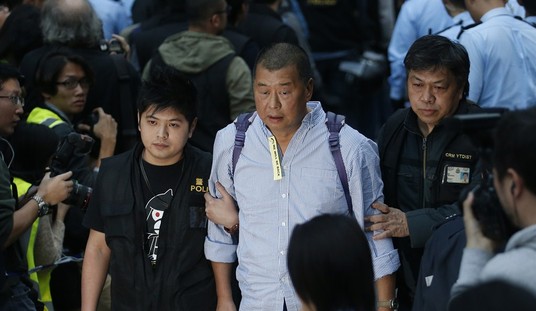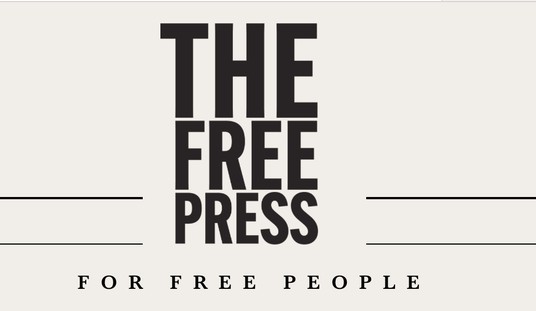They’ve had military advisors inside the country assisting the regime for months and they’re doing their level best to meet Assad’s exploding demand for new weapons. But actually sending Russian special forces to Tartus, presumably to lend a hand in case Syrian troops need help with with their, er, “counterterror” operations, is a new one on me. Message to NATO and any other nascent western/Arab coalition: The price of intervention will be higher than you estimated.
Time to start paying closer attention to Syria.
A Russian military unit has arrived in Syria, according to Russian news reports, a development that a United Nations Security Council source told ABC News was “a bomb” certain to have serious repercussions…
Now the Russian Black Sea fleet’s Iman tanker has arrived in the Syrian port of Tartus on the Mediterranean Sea with an anti-terror squad from the Russian Marines aboard according to the Interfax news agency. The Assad government has insisted it is fighting a terrorist insurgency…
RIA Novosti, a news outlet with strong ties to the Kremlin, trumpeted the news in a banner headline that appeared only on its Arabic language website. The Russian embassy to the US and to the UN had no comment, saying they have “no particular information on” the arrival of a Russian anti-terrorism squad to Syria.
Russia denies it. In fact, their foreign minister said just last week that the country had no plans to send troops to Syria. The State Department also says it has no proof that the reports are true. Maybe that’s just both sides downplaying a provocation publicly while they scream at each other behind closed doors, but Zero Hedge notes that the RIA Novosti report appears not to say what ABC thinks it says, as best as anyone can tell from the Google English translation. The only media outlet that is, unambiguously, claiming that Russian troops are there is Al Arabiya, a Saudi-aligned outfit, quoting opposition sources. Could be that it’s nonsense drummed up by anti-Assad forces who are enraged at Russia’s backing for the regime, but Syria is awfully important to Russia — maybe enough so that Moscow would send troops there just for a few days to show the west that it means business. Why so important? Lots of reasons: Tartus is Russia’s lone remaining foreign naval base; Assad is, as noted, a voracious consumer of Russian arms; Putin’s probably anxious to show strength as he returns to the presidency, both for international consumption and as an implicit warning to Russian protesters. But the main reason is geopolitics. Melik Kaylan argues that it’s not Syria that Russia is desperate to protect, it’s Syria’s patron, Iran:
Why is Iran so central to Mr. Putin’s global pretensions? Take a look at the Caspian Sea area map and the strategic equations come into relief. Iran acts as a southern bottleneck to the geography of Central Asia. It could offer the West access to the region’s resources that would bypass Russia. If Iran reverted to pro-Western alignment, the huge reserves of oil and gas landlocked in Kazakhstan and Turkmenistan and the like could flow directly out to the world without a veto from Moscow.
According to an Oct. 16, 2008, Wall Street Journal report, Turkmenistan is “one of the world’s hydrocarbon provinces” with enough natural gas to supply Europe’s annual needs three times over. Similarly, Kazakhstan’s Tengiz oil field is considered one of the world’s largest. As things stand, these countries depend on Russian pipelines for their national income…
Russia’s gas and oil leverage over Turkey, Ukraine and much of Europe would evaporate. The Silk Road countries would finally reclaim their history since it was diverted forcibly toward Moscow in the 19th century. Their nominal post-Soviet independence would become a reality. Perhaps most irksome for Mr. Putin and his kind, large swaths of the non-Russian zone would prosper disproportionately in comparison to neighboring Russian Federation provinces.
Do yourself a favor and read (or re-read) J.E. Dyer’s two recent posts in the Greenroom on Russia’s strategic investment in Syria and why Putin’s willing to be proactive here while Obama, Sarkozy and whoever else is gearing up for the next coalition of the willing dither. This isn’t a zero sum game between us and them; Russia might, in theory, accept Assad’s ouster so long as it gets to keep its base at Tartus, keep the weapons flowing to the next regime, and keep the Muslim Brotherhood away from the reins of power where it might cause trouble for Moscow and Tehran. If the west chooses intervention instead of a brokered settlement, then it’s calling Putin’s bluff on turning this into an east/west proxy war. If you go for a brokered settlement, though, then Iran’s going to want some sort of guarantee that its own influence in Syria will be protected, which would be a neat trick for the U.S. since 90 percent of the reason to oust Assad in the first place is to shrink Iranian influence.
Exit question: Anyone know offhand how many total questions about Syria were asked in the 358 Republican debates held so far during this campaign? I remember at least one scintillating “this or that?” segment from CNN but not many segments about whether we’re prepared to fight a new proxy war in the Middle East with a fading but dangerous nuclear power like Russia.







Join the conversation as a VIP Member